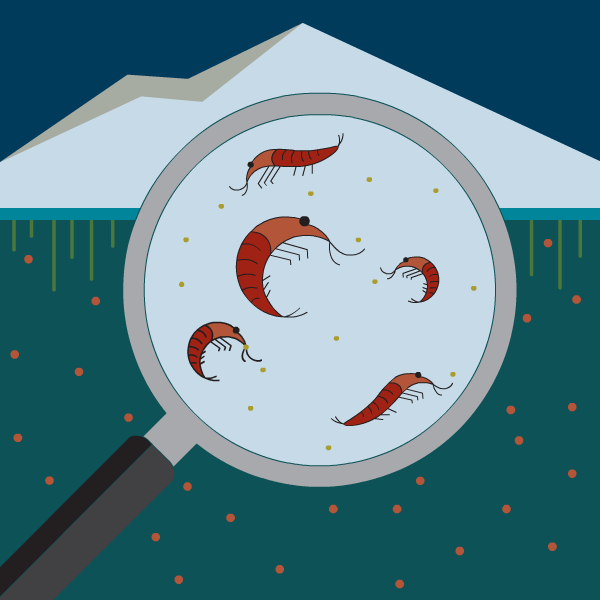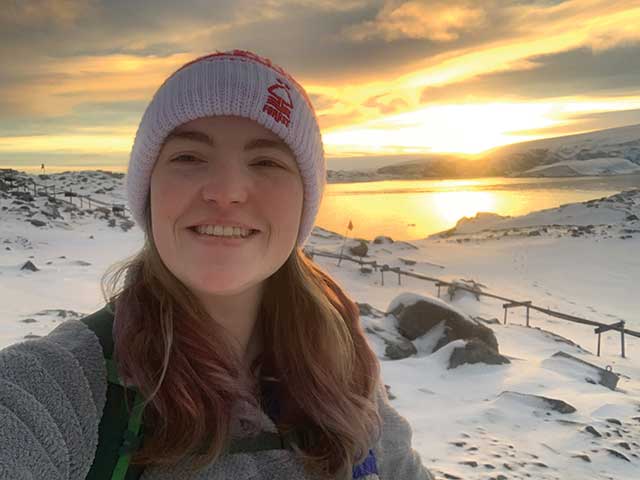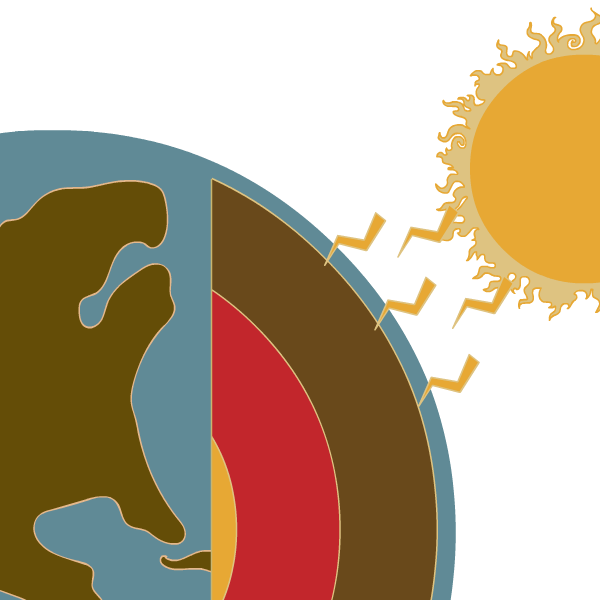Research can take you far — even as far as Antarctica.

Giulia Wood did not have a typical summer in 2022. For her, it was winter and included polar plunges, cracking glaciers and studying Antarctic krill.

The honors biochemistry and molecular biology major in the College of Science was part of Kim Bernard’s all-women research team studying how juvenile krill behave during the winter.
It’s a world most know only through books and documentaries, “untouchable until you are here,” Wood says.
Upon arriving on a U.S. Antarctic Program research vessel, Bernard’s team spent several days in Wilhelmina Bay and the Gerlache Strait to catch the krill needed for their research. They spent the first night searching for 10 hours to no avail.
The next day was magic. After receiving a one-word text, “krill,” Wood made a hectic dash to the vessel’s acoustics computer to help the crew reach an aggregation of krill. When she stepped back on deck, the crew was crouched over coolers filled with the tiny crustaceans.
“You could feel this energy in the air, this indescribable joy that we had done it,” Wood says. “It was a pretty spectacular moment.”
Originally from Washington’s San Juan Islands, Wood chose Oregon State University for its many undergraduate research opportunities, and she started pursuing them immediately. In her first year, Wood joined the Forest Animal Ecology Lab in the College of Forestry through the URSA Engage program in the Office of Undergraduate Research Scholarship and the Arts. She spent her second year in the United Kingdom, looking at sediment cores in a geography lab. Returning to Corvallis, she started looking for projects that piqued her curiosity.
Kim Bernard’s Zooplankton Ecology Lab in the College of Earth, Ocean, and Atmospheric Sciences stood out. It was also looking for undergraduates, and Wood quickly joined the team.
In Antarctica, she helped study how diet affects krill respiration, growth rate, lipid content and other factors. Krill can not only shrink, but they may also regress in sexual maturity as energy-saving techniques to survive harsh winter conditions.
Climate change has impacted the availability of food for krill. Reduced sea ice is also a problem since krill use it as a feeding location due to the algae underneath and the higher concentration of food sources.
“Krill are very much being impacted by climate change, and they are a critical part of the marine food system here,” Wood says.
Back for her senior year at OSU, Wood is grateful she pushed herself to try new experiences, develop research skills and explore potential career paths. Don’t let doubt get in the way of opportunities, she advises. The opportunities can take you far — even to the ends of the Earth.
Related Stories
 Video file
Video file Video file
Video file Video file
Video file Video file
Video file